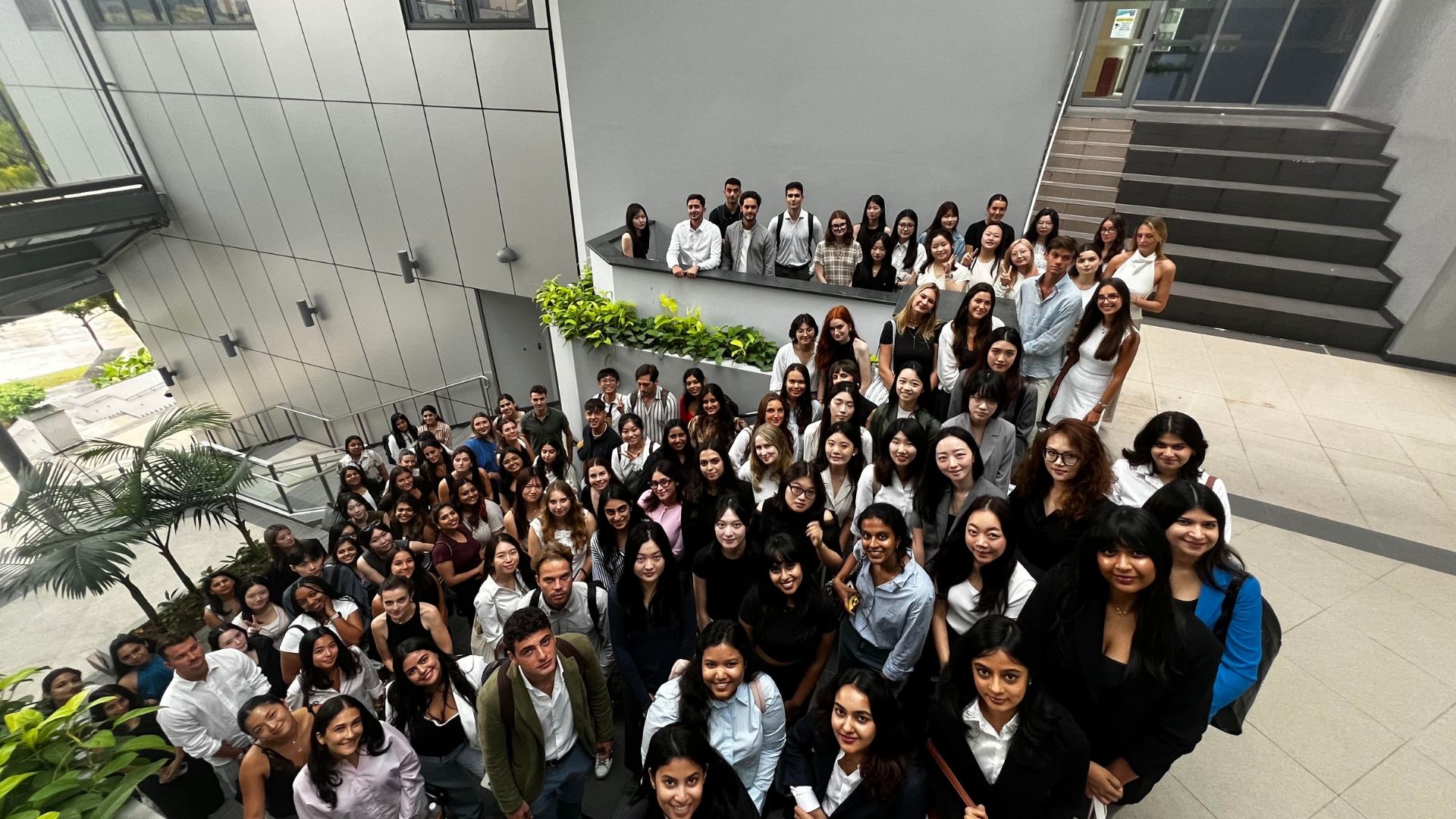For business students in Asia, understanding etiquette isn’t just a matter of politeness. It’s a competitive advantage.
From how you greet someone to when you present a name card, these unspoken rules can influence first impressions, relationships, and even deals.
Here’s a quick guide to help you avoid common missteps and build stronger connections across different Asian business cultures:
- Start with Respect: Greetings Matter
In Singapore, a firm handshake and direct eye contact are appreciated, but don’t overdo it. In contrast, in Japan or South Korea, bowing is a sign of deep respect. A slight bow when offering a handshake shows awareness of local norms. In Thailand, the wai—palms pressed together with a slight bow—is customary. Let the host lead the greeting and follow their cue. - Name Cards: More Than Paper
In many Asian cultures, business cards are treated with formality. In Japan, present your card with both hands, text facing the recipient. Don’t immediately pocket a card you receive. Instead, take a moment to read it and place it respectfully on the table or in a dedicated card case. Writing on someone’s card or casually sliding it into your back pocket can be seen as rude. When unsure, treat a business card like a personal gift. - Hierarchy and Speaking Order
Age and seniority are highly valued in many Asian countries. In China, South Korea, and Vietnam, speaking out of turn or interrupting a senior person—even with good intentions—can be perceived as a sign of disrespect. In meetings, greet the most senior person first. If you’re unsure who that is, look for seating arrangement cues or observe who is introduced first. - Gift-Giving: Know the Context
Gift-giving can be a thoughtful gesture in cultures like China, Japan, and Indonesia. But tread carefully. Lavish gifts may raise concerns, especially in countries with strict anti-bribery laws such as Singapore. When appropriate, offer modest, culturally respectful gifts, ideally from your home country, and present them with both hands. Avoid taboo items. Clocks in Chinese culture (symbolising death) or anything in sets of four (associated with bad luck). - Read the Room: Silence, Indirectness, and ‘Saving Face’
In many parts of Asia, silence can reflect thoughtfulness or disagreement. Don’t rush to fill the gap. You may also hear a “yes” that simply means “I hear you,” not “I agree.” Preserving harmony—or face—is critical. Avoid pushing for direct answers in sensitive situations. Follow up gently or observe body language for more clues.
What This Means for You
Mastering etiquette isn’t about following a checklist. It’s about showing respect, curiosity, and cultural awareness.
As a business student operating in Asia, these skills help you build trust and credibility often before you even say a word.
Relationships drive business here. The better you navigate cultural nuances, the further you’ll go.
RELATED POSTS
Building a Personal Brand While You Study
How students use LinkedIn, blogging, or speaking engagements to stand out.
Finding Your Fit: How ESSEC Asia-Pacific Career Services Help Global BBA Students Build Meaningful Career Paths
As Manager of Career Services at ESSEC Asia-Pacific, Cerella Sim draws on over a decade of recruitment experience to help Global BBA students…
Success After Graduation: Alumni Job Outcomes in Asia
ESSEC Asia-Pacific's Global Bachelor of Business Administration (GBBA) program effectively prepares students for successful, globally-focused…
What I Learned from Failing My First Job Application
First rejection taught ESSEC alumna Medha Thakkar that career setbacks spark growth, leading to resilience, networks, and unexpected opportunities.
Career Success Through the ESSEC Global BBA
ESSEC's Global BBA transforms students through immersive professional experiences, international mobility, and real-world learning opportunities…
How To Use LinkedIn to Open Doors While Still in School
Students can transform LinkedIn from networking afterthought into career catalyst through strategic profile building, authentic storytelling, and…








